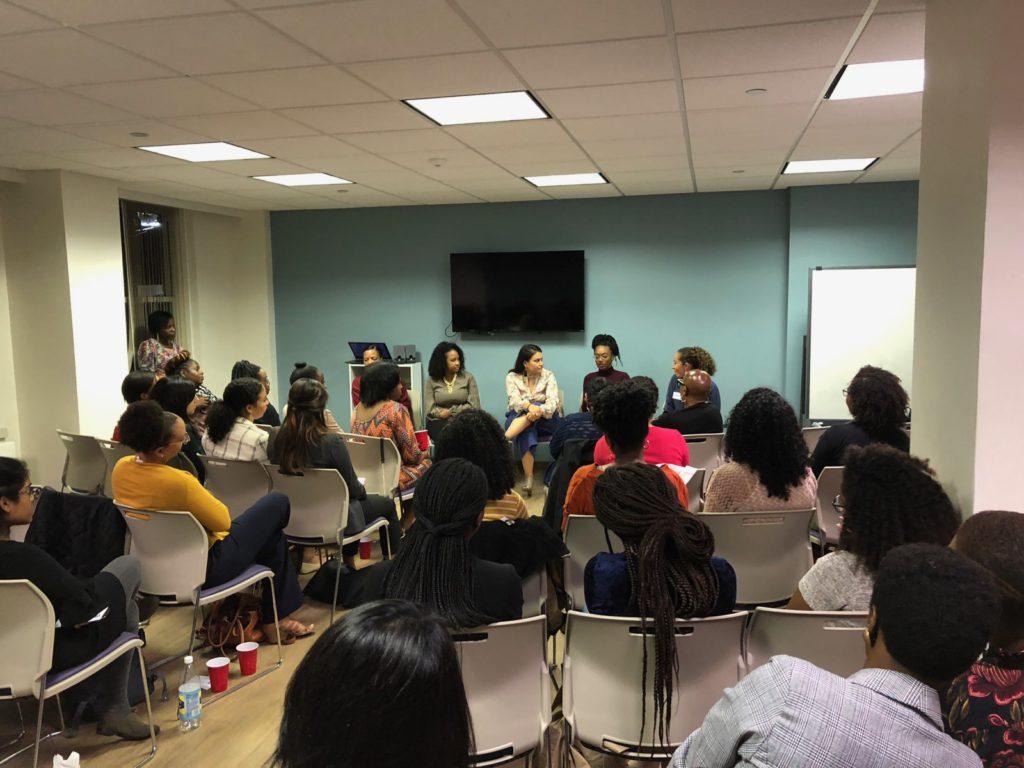By Zach Carmosino, news correspondent
“When you stand alone in a room, you’re bringing in a thousand people with you.”
As a woman of color in a city with a history of racism, Courtney Leonard, the CEO and founder of HerVision Media and Consulting, described the pressure of representing her race in spaces lacking diversity.
“When you’re the only black person, the pressure can be enormous,” said Timanni Walker, a brand strategist at MullenLowe.
On Thursday evening, Leonard, Walker and three other panelists discussed their professional and personal experiences at Aspiring and Inspiring Millennial Women of Color. Organized by the Big Sister Association of Greater Boston, the event was about connecting and empowering young women of color.
“This festival is a five-day festival with more than 40 events that’s aimed at millennials of color,” said Mia Roberts, the vice president of strategic affairs at Big Sister. “It’s in spaces that you don’t typically see millennials of color, and it’s about building a core network of people so that you feel that Boston is for you too.”
Walker explained her experience at an interview where she “showed up black as hell,” and explained to the interviewer that her authentic self would be most productive. She says she opted to let the results speak for themselves.
“Work is the ultimate equalizer, no matter your race,” she said.
According to Leonard, this may be especially true because students of color tend to come out of college with less money. A 2006 report from the U.S. Department of Education showed that black students were more likely to take on debt than their white peers.
Carla Monteiro, a graduate student in social work at Boston College and a clinical transition specialist and emergency department social work resident at Brigham and Women’s Hospital, spoke about the lack of diversity in her profession.
“There are many times where I am the only black person at the table. There is lack of diversity in the medical field for two reasons: One, we haven’t been given the opportunity, and two, we have not been exposed to some of these roles.”
Rosario de la Garza, a recruitment coordinator at Big Sister, said that she used to try to sound more white in professional settings, but realized that her background could be a strength.
“Being different is your advantage,” she told the audience.
She added that because of their smaller population in Boston, it is exciting for her to meet other Mexican people in the area. She says that she enjoys sharing experiences with them and embracing her heritage.
Nathalia Ashworth, a director at Capital Markets and Accounting Advisory described the pressure she experienced in Brazil for women to take care of men in their lives.
“Coming from a Latin culture, it’s expected to serve,” she said.
Ashworth said that one of the biggest challenges for women of color in Boston is identifying with others at work, but encouraged the audience to embrace being a minority.
Rosario de la Garza, 25, said that she is the only one of her cousins who hasn’t married and feels pressured by her family to settle down with a man. She has opted to focus on her career and education instead.
“I hate cooking, and I don’t like to take care of nobody,” she said.
Walker described her successes as relating to happiness and growth for herself and her community, a sentiment echoed by her fellow panelists.
“Being myself and working hard is my success,” said Rosario de la Garza.
Marcelle Hutchins, the panel’s moderator and an associate producer at WBUR, encouraged the audience to embrace their identities.
“Every time I walk into my job, I think, ‘I am the change.’”
Updated to include a quote from Carla Monteiro, a panelist at the event.







![A demonstrator hoists a sign above their head that reads, "We [heart] our international students." Among the posters were some listing international scientists, while other protesters held American flags.](https://huntnewsnu.com/wp-content/uploads/2025/06/image12-1200x800.jpg)

